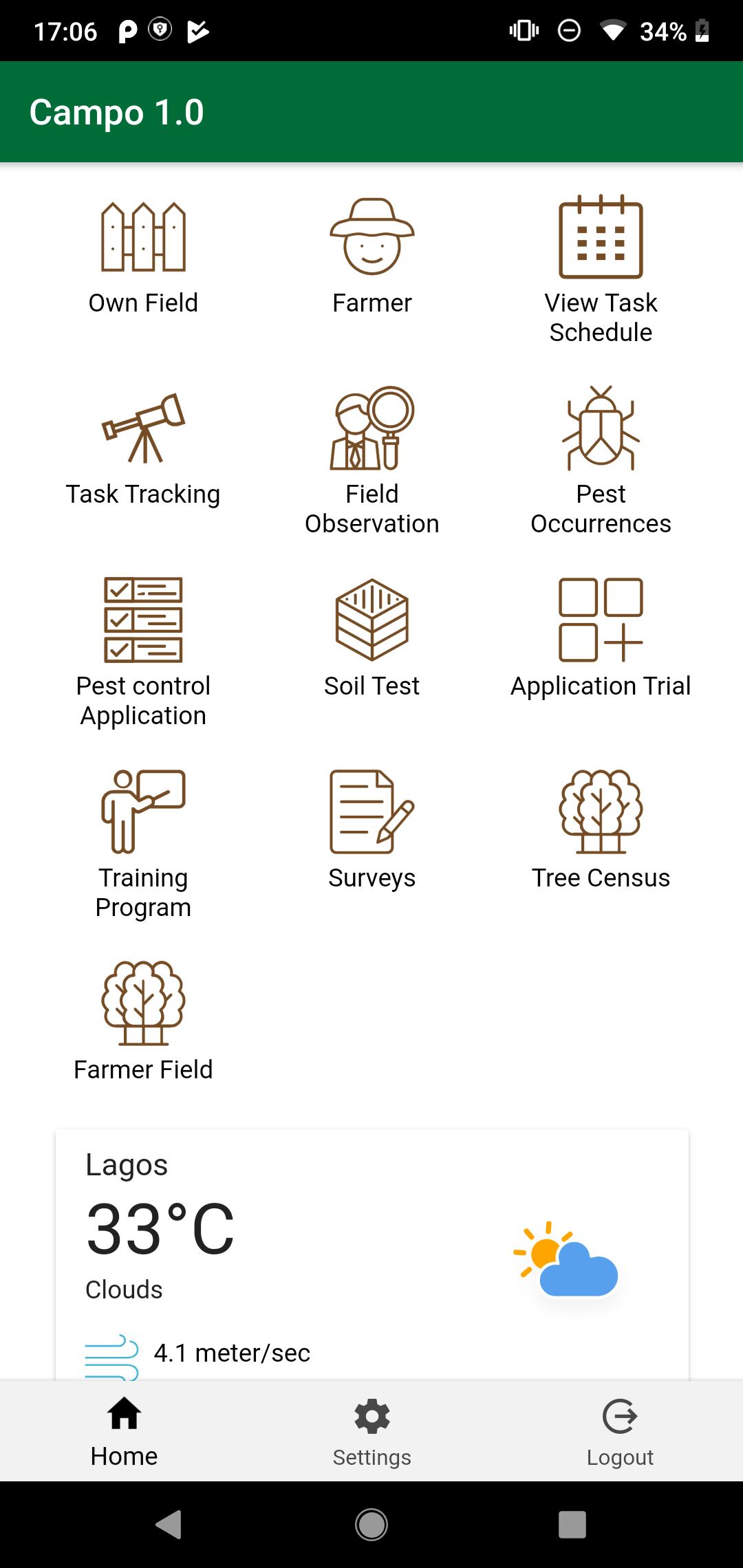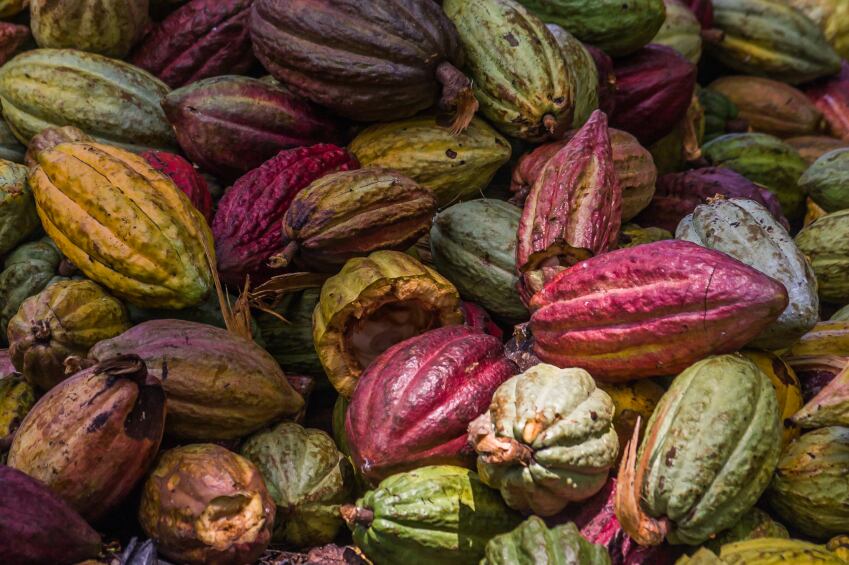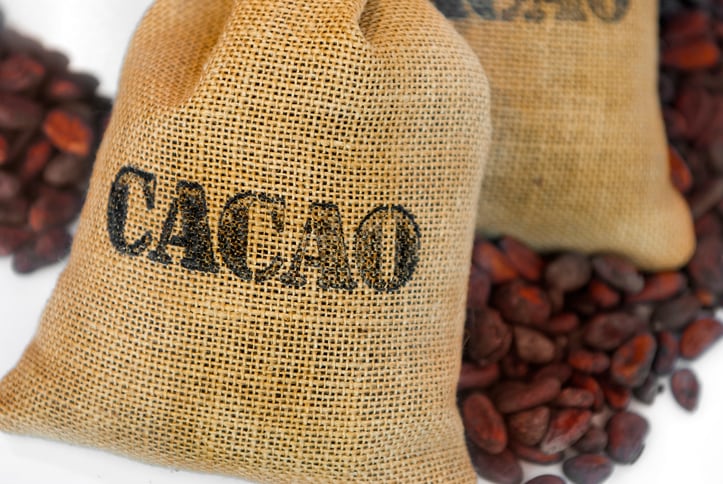The software tool, designed specifically to help agri-food companies that procure crops from smallholders, gives suppliers more control over their operations by "digitising the field", according to Froid Mendez, co-founder and chief operating officer (COO) of Cochin-headquartered Farmlogics.
Cocoa, palm oil and rubber producers are already using it in West Africa but it could be used for other smallholder-grown crops, such as tea, coffee or rice.
“It provides a good platform for really efficient internal control. It helps companies achieve certification which gives them value and companies can ensure farmers are paid the premiums. With this tool, companies can also align with the Sustainable Development Goals," he told FoodNavigator.
Companies can reduce the risk of child labour, for instance, while simply using the tool improves farmers' credit ratings in the eyes of banks and financial institutions, giving them better access to finance. (Financial inclusion is seen as an enabler of the 2030 SDGs)
Sustainable sourcing aligned with SDGs
There are other benefits for farmers on a day-to-day basis. The app helps them schedule everyday activities such as planting, weeding, spraying and harvesting, as well as keeping data

on inventories and inputs on smartphones or tablets.
The app sends weather forecasts to farmers (sourced from OpenWeather although more detailed data can be accessed for an additional fee) and helps them with pest management.
“If [the farmer] finds a particular bug in the oil palm and doesn’t know how to deal with it, he could take a photo of it," Mendez said. "This picture is shared with the web app and addressed by the agronomists of the company who advise the farmer on how to deal with the pest."
Big name clients
Farmlogics cannot name names but its client base already includes some big players in the cocoa and palm oil sectors.
“One of our clients works with around 100,000 cocoa farmers, of whom 30-35% are UTZ and Rainforest Alliance certified,” Mendez said.
“Another client works with 2,000 oil palm smallholder farmers and a [third] works with around 25,000 cocoa farmers. They use our software solution to handle their farmer data, crop sourcing and stock movement, crop sales and farm input sales business.”
“The biggest challenge so far was, of course, the product development, although we were in the industry for many years before so had a fair idea of what the market was looking for. A second challenge was creating a product that was cost-efficient as other products do exist on the market but we wanted to bring the price down."
‘Our main USP is the low cost’
Farmlogics offers several products at various prices.
Its Contract Farming Management Solution, which includes smallholder management, input sales management and farm management functions, the company charges $40,000 for a one-time licencing fee.
This also includes cloud-hosting charges and four to six weeks of onsite implementation and training.
It also has a per-farmer pricing model, although the exact cost depends on the number of farmers in the co-op or farmer organisation.
By the end of this year, Farmlogics is aiming to make between $500,000 and $1 million in total project value.
Barriers to uptake
European civil society coalition Make Chocolate Fair estimates that many farmers in the Global South survive on less than $1.25 (€1.10) a day. This is below the threshold of absolute poverty. The need to have a smartphone is, therefore, a clear barrier to uptake.
But, according to Mendez, not as much as one would expect
“Of course there are many farmers still using basic mobile phones but we see the percentage [ownership] of low-end Android phones increasing.”
The Farmlogics team attended Agra Innovate 2018 trade show in Nigeria last month, where they participated in a session on drone and mobile technology in agriculture, and Mendez said many farmers present were “eager to get to know the technology and adapt it”.
“Another challenge I have noticed in the African context is the high cost to adopt the technology. But with the co-op model or privately invested company model, this can be overcome,” Mendez said.
“Currently, our project involves companies that provide the necessary infrastructure for these farmers, we do not work with individual farmers but I think that those days are not far off. Many farmers can afford a basic android phone. So I think [this] will change how the farmers interact and practice agriculture in the coming years, even in Africa.”
Expanding from Africa to India and (possibly) Latin America

Most of Farmlogics’ reach is in West Africa, notably Ghana, Cote d’Ivoire, Benin and Gabon, and next year the company will set up regional offices in Ghana and Nigeria as farmers there like to do business with local players.
The Farmlogics founders previously worked in West Africa for over ten years and had good contacts in the region. It therefore seemed like a natural market to enter, the COO explained.
“Contract farming sector has also flourished more in Africa with large corporate operations so easy access for us,” he added.
But the company also has its sights set on its home market, India, particularly for crops such as tea, rubber and spices.
Until recently, India’s agricultural landscape lacked the regulatory framework to allow Farmlogics do operate easily. This year, however, the government passed the Agricultural Produce and Livestock Contract Farming and Services (Promotion and Facilitation) Act of 2018, which aims to “integrate” smallholder farmers with agri-food industries.
“We hope this will give us lots of opportunities to address our local market,” Mendez said.
The medium to long-term could also see it make a foray into Latin America since its biggest client buys cocoa from growers in Ecuador, Peru, Dominican Republic and Brazil, Mendez said, but until now, the Latin American region has posed a language barrier for the Anglophone team.


